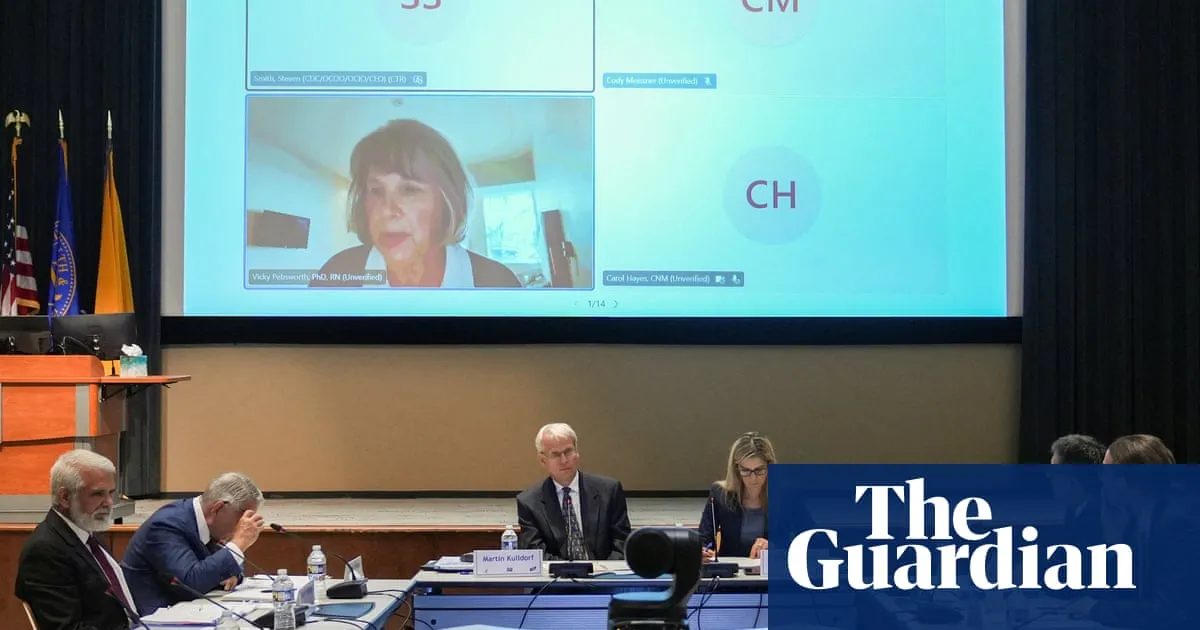
Robert F. Kennedy Jr.’s reconstituted vaccine advisory panel has made a significant recommendation regarding a new treatment aimed at preventing respiratory syncytial virus (RSV) in infants. The panel endorsed a monoclonal antibody, known as clesrovimab, which will be marketed under the brand name Enflonsia by Merck. This recommendation follows its approval by the Food and Drug Administration (FDA) approximately two weeks ago.
The voting process for this recommendation was notably contentious, occurring a day later than scheduled and after extensive deliberation among the panel's seven newly appointed members. These members are perceived as ideological allies of the former Trump health secretary, who has expressed concerns over what he sees as the “overmedicalization” of healthcare for American children. Dr. Retsef Levi, a professor at the Massachusetts Institute of Technology, raised concerns about the implications of the data presented, stating, “I think we need to ask ourselves what the parent would say given this data.” Ultimately, he expressed his skepticism and voted against the recommendation of the monoclonal antibody.
The panel, known as the Centers for Disease Control and Prevention’s Advisory Committee on Immunization Practices (ACIP), plays a crucial role in advising the CDC on how to distribute vaccines and other medical interventions, including monoclonal antibodies, to the public. Kennedy’s decision to replace all 17 serving members with individuals of his choosing has drawn substantial criticism from the medical community.
This vote marks just one of the many issues on the agenda for the panel, which is also set to discuss a highly controversial topic: the use of thimerosal in influenza vaccines. Thimerosal, an ethylmercury-based preservative, was eliminated from routine childhood vaccines in the early 2000s, yet remains a focal point of contention among anti-vaccine advocates. Experts argue that discontinuing its use entirely could limit vaccine access, as it would necessitate the production of more expensive single-use vials.
In June, Kennedy dismissed all 17 members of the ACIP, citing conflicts of interest, and appointed eight new members who share his ideological perspectives. Notably, one appointee, Dr. Michael Ross, resigned from the panel after a government review raised questions about his employment status with two universities. This change has resulted in only seven voting members, significantly fewer than the usual 19.
The critical vote focused on recommending clesrovimab for infants under eight months old who are born during or entering the RSV season. The committee also considered whether to include this drug in the Vaccines for Children program, which provides vaccines to about half of all American children. Despite the contentious discussions, five members voted in favor of the recommendation, while Dr. Levi and nurse Vicky Pebsworth, a volunteer research director for a prominent anti-vaccine group, voted against it.
RSV is the leading cause of hospitalization for infants in the United States, with most infants contracting the virus within their first year. Approximately 2% to 3% of those infected end up hospitalized, many of whom have no underlying health issues. Prior to 2023, there was no long-acting preventive treatment for RSV, and the efficacy of monoclonal antibodies tends to diminish over time.
While some ACIP members expressed concerns about potentially allowing the transmission of RSV to continue into toddlerhood, CDC career scientists emphasized the importance of protecting infants during their most vulnerable months. “Part of what we want to do is protect them when they’re most vulnerable,” stated Adam McNeil, CDC deputy branch chief for epidemiology in respiratory viruses. The data indicates that during the 2024-2025 respiratory disease season, 57% of infants either had vaccinated mothers or received monoclonal antibodies at birth, leading to a reported 30%-40% reduction in RSV hospitalizations, according to the CDC.